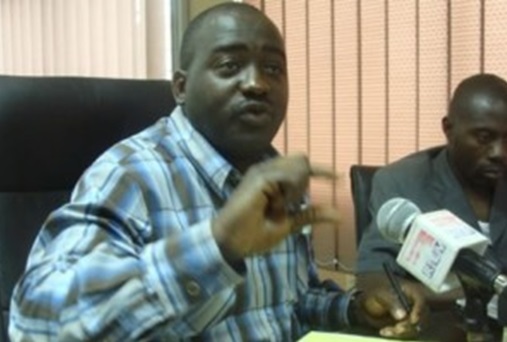The Liberian government faces a significant challenge in collecting over US$15 million in road tariffs from petroleum importing companies, jeopardizing crucial infrastructure development projects. This substantial debt, accumulated primarily through unpaid levies and fees on petroleum imports, is earmarked for the National Road Fund (NRF), a vital resource for road maintenance and rehabilitation across the country. The NRF’s Chief Administrative Officer, John H. Tokpah, has publicly disclosed the companies’ outstanding debts, highlighting the detrimental impact of their non-payment on Liberia’s infrastructure development efforts. The largest defaulter, Srimex Oil and Gas, owned by Representative Musa Hassan Bility, owes over US$3.7 million, a figure that has raised concerns about potential legal action and the broader implications for investor confidence in Liberia’s petroleum sector.
The revelation of these substantial debts came during a House of Representatives hearing prompted by Bong County Representative James Kolleh. The hearing aimed to address the growing issue of fuel importers’ arrears to the NRF, a critical funding source for road maintenance and infrastructure projects. The NRF, in conjunction with the Ministry of Justice and Ministry of Public Works, presented details of the outstanding amounts, emphasizing the urgent need for these funds to support critical road projects across Liberia. The hearing underscored the significant shortfall in funding for these projects and the potential consequences for the country’s infrastructure development goals. The failure of companies like Srimex to fulfill their financial obligations directly hinders these efforts, impacting the overall development trajectory of the nation.
Srimex Oil and Gas, a prominent player in the Liberian petroleum market, finds itself at the center of this financial controversy. The company, owned by Nimba County Representative Musa Hassan Bility, has yet to provide a satisfactory explanation for its failure to meet its financial obligations to the NRF. Despite numerous attempts by government agencies to engage with Srimex regarding the outstanding US$3.7 million debt, the company has not made significant payments. This lack of responsiveness raises serious concerns about potential legal ramifications, including sanctions, asset seizures, or legal proceedings. The government’s resolve to recover the owed funds could significantly impact Srimex’s operations and potentially damage its reputation within the Liberian business community.
The situation with Srimex is not isolated; several other petroleum importing companies also have significant outstanding debts to the NRF. While some importers, such as Conex and Aminata & Sons, have initiated payments, others, including LPRC, Petro Trade, Kailondo, and NEXIUM Petroleum Limited, are disputing the assessed amounts levied by the Liberia Revenue Authority (LRA). This widespread non-compliance further exacerbates the funding shortfall for the NRF and underscores the need for stricter enforcement of road fund regulations. The combined outstanding amount from all defaulting importers totals approximately US$15.2 million, a substantial sum that could significantly bolster Liberia’s infrastructure development efforts if recovered.
The Liberian House of Representatives has taken decisive action to address this critical issue. Recognizing the urgency of the situation, the House has summoned the Ministry of Justice, the Ministry of Public Works, the National Road Fund, and the concerned petroleum importers to appear before it for further clarification. This move underscores the government’s commitment to holding defaulting companies accountable and ensuring the recovery of the outstanding funds. The House has also mandated the presence of the Liberia Revenue Authority (LRA) at the upcoming hearing to address the disputes over the assessed amounts.
The upcoming hearing represents a crucial juncture in this financial dispute. Lawmakers will have the opportunity to directly question the petroleum importers about their failure to comply with road fund regulations and demand a clear explanation for the outstanding debts. The presence of the LRA will provide a platform for mediating the disputes over assessed amounts, aiming to reach a resolution that ensures the timely collection of the much-needed funds for the NRF. The outcome of this hearing will likely determine the course of action taken against the defaulting companies, potentially involving legal proceedings or negotiated settlements. The government’s response will send a clear message about its commitment to enforcing financial regulations and maintaining investor confidence in Liberia’s business environment.














